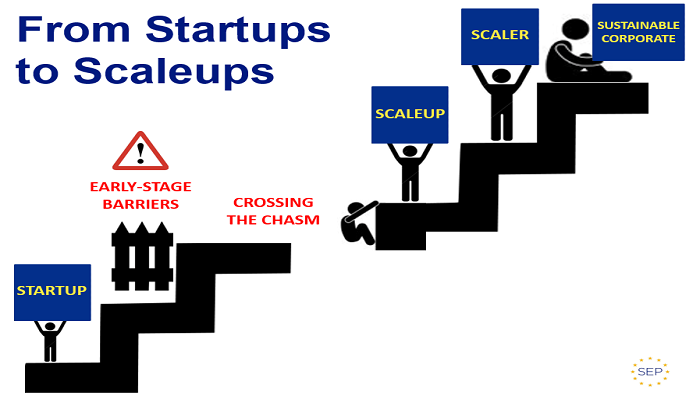If you have been hanging out with entrepreneurs and tech guys (they like to be called Tech-preneurs), you will come across a popular tech-preneur jargon called “scaling”. You see these days everyone wants to “scale”.
So let’s quickly define what “scaling” is
“scaling” is about growing revenue at an exponential rate while only adding resources at an incremental rate. Achieving scale might mean increasing your revenue to $2k, while cost moves from $200 to say $250. Sounds cool right?
Let’s consider this scenario, if it usually would costs you $200 to generate $1k, if you increased that $1k revenue to $2k and your cost moves from $200 to $400, you have not necessarily scaled! This is because you doubled your revenue while doubling your cost as well.
Scaling is not synonymous to growth. You can grow revenue and not achieve scale. You are not scaling if your revenue and cost grows at matching rate. This means that scaling involves careful planning, if you will ever get the chance to brag. “ We have scaled”
We would look at two major ways scaling is achieved;
- Product/Service Expansion
- Geographic Expansion
Product expansion typically involves layering on additional product lines to further engrain your position within your product value chain and of course capture a wider target audience.
For instance, an online retail business selling mobile phones – say www.mobo.ng can expand its product offering to include PCs and accessories. This product expansion drive will position this mobile phone retailer within the computer electronics value chain while expanding its customer base.
So rather than www.mobo.ng just being known for just mobile phones, the business then has a reputation for offering a wider product range. If www.mobo.ng successfully implement its product expansion plans, the likely outcomes will be an increased revenues and a wider target market.
However, it is important to note this revenue increase would only make business sense in the event that the revenue increase outstrips the cost of providing this additional service (in terms of percentage increase).
Scale can also be achieved via geographic expansion. For instance, our case study online retail business – www.mobo.ng started its operations from Lagos, Nigeria.
As a result of appreciable demand from other parts of the country www.mobo.ng might decide to make its services available in both Port Harcourt, Onitsha, Abuja or even go “international” to place like Ghana and Kenya (Nigerian Techpreneurs have a thing for these places)
Surely this will address demand from these additional locations, but www.mobo.ng must also take cognizance of the cost of providing these services in the new locations, for the geographical expansion to make sense it should be lower than the benefits of such expansion.
In Nigeria, amongst techpreneuers there has been a craze for massive geographic expansions in the name of scaling. I have seen articles on building a Nigerian Startup or a Startup from Nigeria, essentially pressuring founders and entrepreneurs to “scale” to other African countries because Taxify has “scaled”.
Let me clearly mention here, the fact that your business began operations in Ghana and Kenya does not necessarily mean that you have scaled! You might just be digging the grave for your business. Scaling must never be an emotional decision, it must be a business decision.
Operating efficiently in Nigeria alone is tough! Nigeria is large (183 million people strong and counting). I reckon that before you consider a regional expansion, you should have conquered a certain market (especially your local market).
DON’T SCALE WITH YOUR INEFFICIENCIES! You must understand your local market, gain control of all (at least most) of your business dependencies. Understand and address your business problems first before thinking expansion.
In fact, I advise that businesses should start with a single product line to learn about the market, then layer on additional complimentary products before thinking of geographic expansion.
Learn to take your punches on a small scale. Trust me, the market will punch you! It will be a disaster to get punched at the same time in 3 different countries.
Trust me, Nigeria is large, but very diverse. Your strategy in Lagos won’t probably work in Kaduna and you would have to tweak your approach in Abuja.
Ask entrepreneurs, Lagos is fast paced, the traffic is killing. But Abuja is a lot slower and complacent (at least from the Lagosian perspective). If your value proposition is convenience for instance, the way an Abuja resident thinks of convenience is way different from the Lagosian view, hence you must find a way to tweak your product offering or delivery method to suit both markets, let alone Kenyans and Ghanaians.
So, thread with caution. The slow steps of a Tiger should never be interpreted as cowardice! Once you have a full hang of your business and you strike, No one will be able to stop you!
Happy entrepreneuring
Fisayo Durojaye
